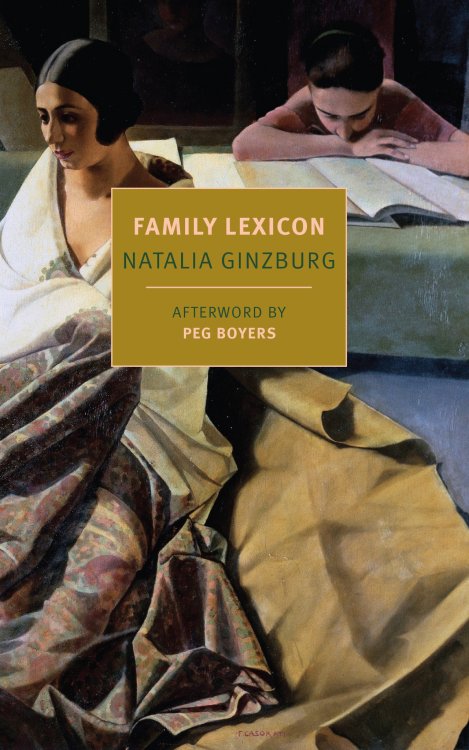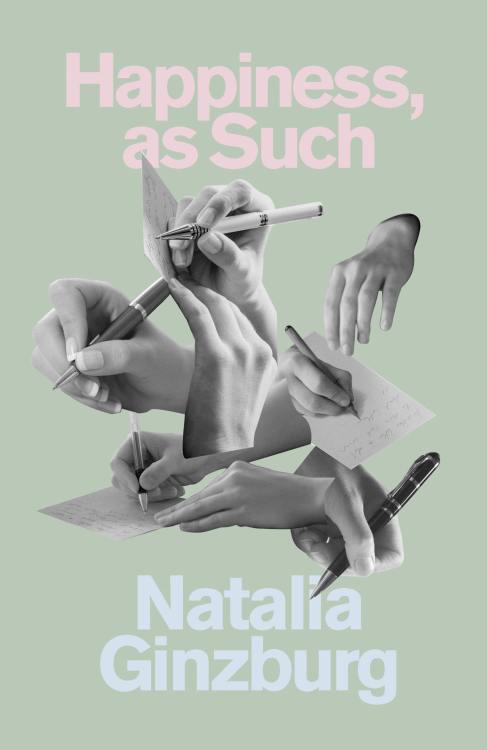#literature in translation
In November, we have a newly translated volume of Józef Czapski’s haunting memoirs of the Soviet Starobielsk prison camp and insightful reflections on art making, alongside Leonora Carrington’s The Hearing Trumpet, a delightful surrealist adventure set in the strangest of nursing homes.
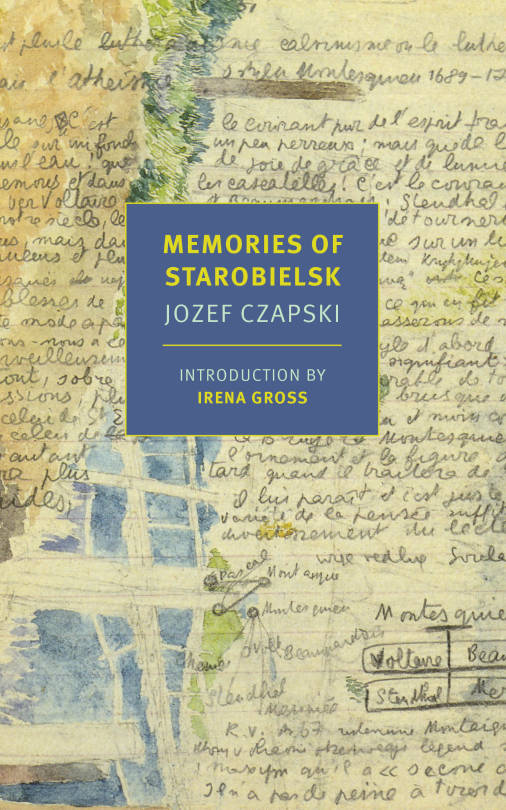
Józef Czapski, Memories of Starobielsk
The Polish artist, writer, and army officer Józef Czapski became a Soviet prisoner during World War II—experiences he illuminated in Lost TimeandInhuman Land, previously published by NYRB Classics. This new volume includes his memoirs of the doomed men of the Starobielsk prison camp, where he was one of just a few Polish officers to escape execution. Also included are a selection of Czapski’s essays on art, history, and literature.

Leonora Carrington, The Hearing Trumpet
Beloved by Björk, Ali Smith, and Luis Buñuel, The Hearing Trumpet is a fantastic romp starring an eccentric ninety-two-year-old woman who is institutionalized by her family. But this is no ordinary institution: the buildings are shaped like cakes and igloos, the residents must undergo bizarre religious training, and it houses an ancient, mysterious magic. This feminist fable by the treasured surrealist painter remains one of the most original and inspirational of all fantastic novels.
Also arriving in October are these two books, hailing from Russia and China. Nikolai Leskov—“Russia’s best-kept secret,” according to translator Donald Rayfield—wrote his strange folktales in the nineteenth century, while Ge Fei’s newly translated novel follows a woman fighting for equality in the chaotic Chinese climate of 1898.
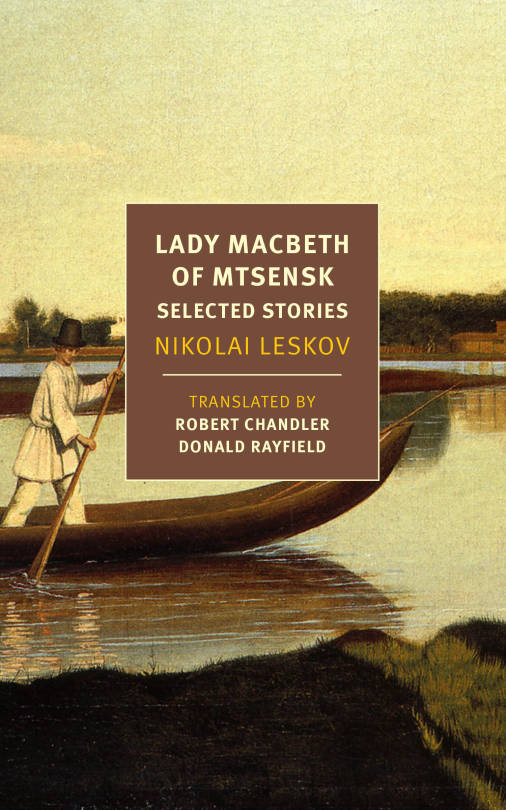
Nikolai Leskov, Lady Macbeth of Mtsensk: Selected Stories
Nineteenth-century Russian literature abounds with gems, but none stranger than the stories of Nikolai Leskov. An inspiration for Walter Benjamin’s famous essay “The Storyteller,” Leskov’s work hews close to the old world of oral tradition. Its title story is a tale of illicit love and multiple murder that could easily find its way into a Scottish ballad.
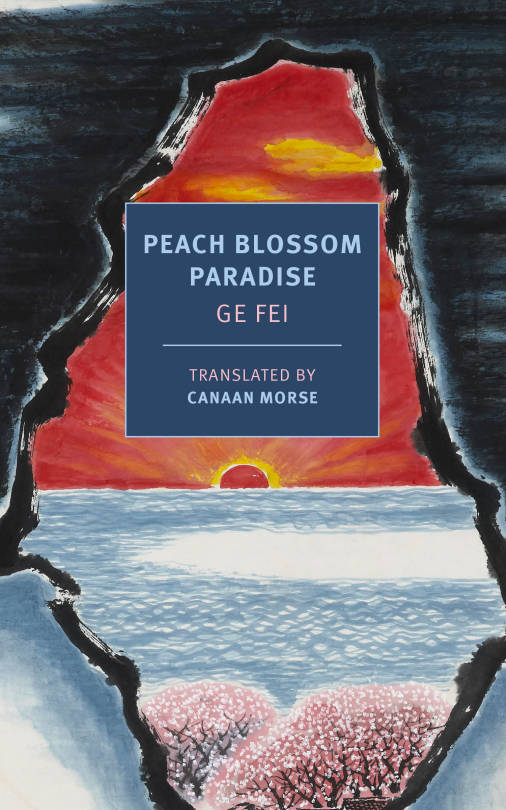
Ge Fei, Peach Blossom Paradise
Ge Fei’s The Invisibility Cloak was a comic novel of contemporary China, but here, he turns a steely gaze to the year 1898, the country ablaze with hopes of revolution. Xiumi, a young daughter of wealthy parents who becomes a pawn in the reform efforts of several men, begins to fight the Confucian social mores that view women as property. Her campaign for change is a battle to win control of her own body—whatever the cost.
Our September preview showcases stories of familial dysfunction from the brilliant Natalia Ginzburg and Susan Taubes. The beloved Italian author considers the strained relationships between parents, children, and siblings, while Taubes’s Divorcing, out of print for over fifty years, takes up the collapse of a marriage and a sense of self.
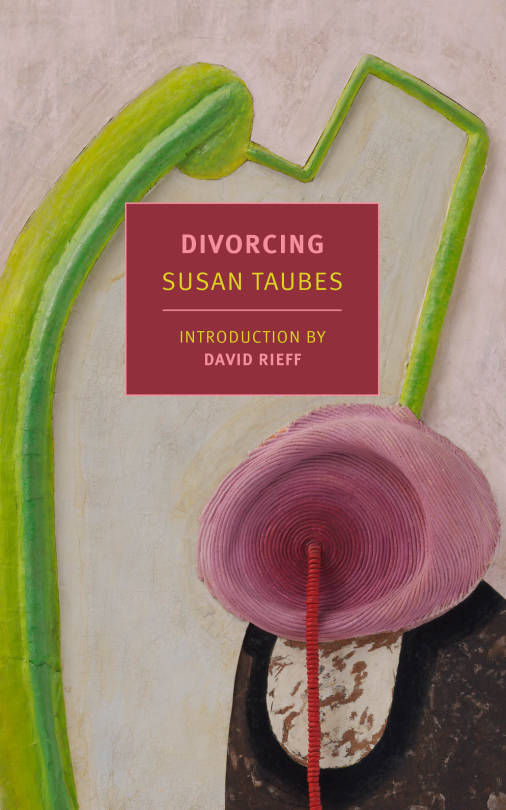
Susan Taubes, Divorcing
Sophie Blind is divorced—and not merely from her husband but from herself, as her own memories and emotions seem increasingly remote. In luminous fragments, the narrative flits from New York to her childhood home of Budapest, considering her parents’ divorce alongside her own. Fans of Renata Adler and Elizabeth Hardwick, take note: this dreamlike novel from 1969 is a forgotten precursor to their lyrical work in the ’70s. Taubes, a close friend of Susan Sontag, committed suicide at forty-one soon after its publication.
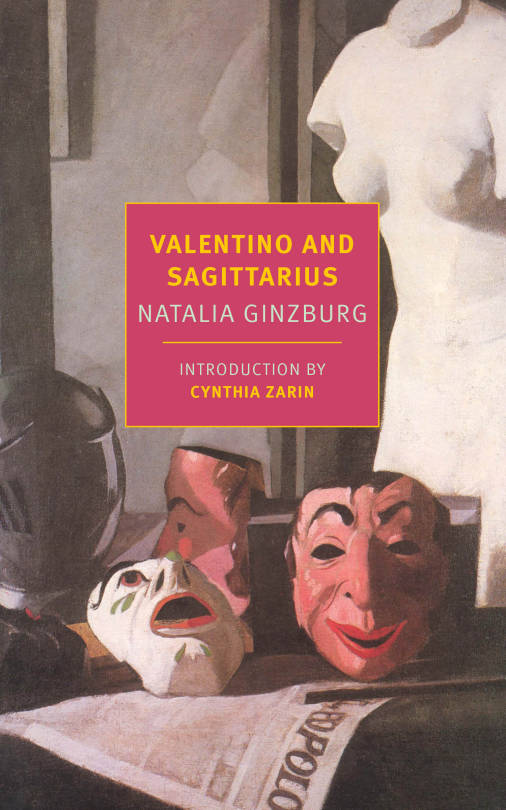
Natalia Ginzburg, Valentino and Sagittarius
From the celebrated author of Family Lexicon comes these two novellas of dysfunctional family life. In Valentino, a sister tells the story of her doted-upon brother, who upends his family’s expectations when he suddenly marries an ugly but wealthy older woman and begins a secret affair with her male cousin. In Sagittarius, a daughter and her hypercritical mother move to the suburbs, where she becomes obsessed with impossible dreams of opening an art gallery.
Next up is our new season of NYRB Classics, starting from August 2020 and spanning all the way to January 2021. In August, you can get the best of both worlds with these two collections: one of the political essay through the ages and the other of dark, whimsical Soviet-era short stories.
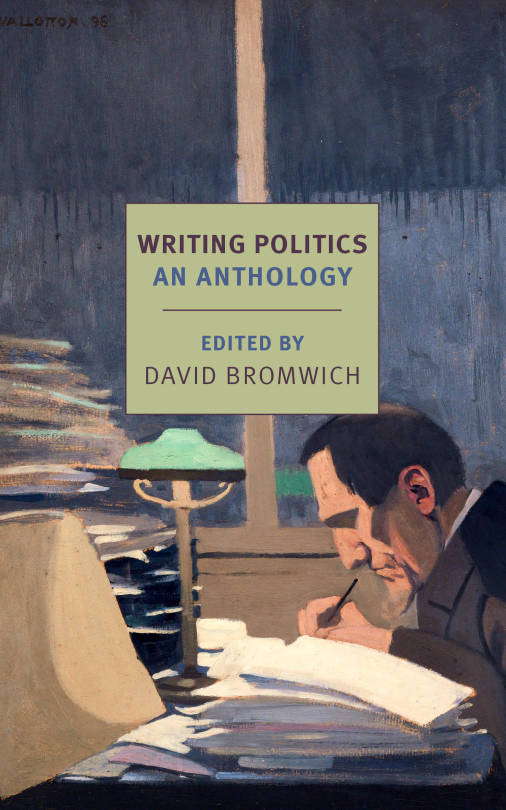
Writing Politics: An Anthology, edited by David Bromwich
David Bromwich, one of the greatest political writers on the left today, presents twenty-seven essays that grapple with issues that continue to shape history—revolution, racism, women’s rights, citizenship, and the status of the worker among them—and are prime examples of the power of the essay to reshape our thoughts and the world. Selections include Jonathan Swift, Edmund Burke, George Eliot, Harriet Taylor, W.E.B Du Bois, Mohandas Gandhi, George Orwell, Martin Luther King, and Hannah Arendt.
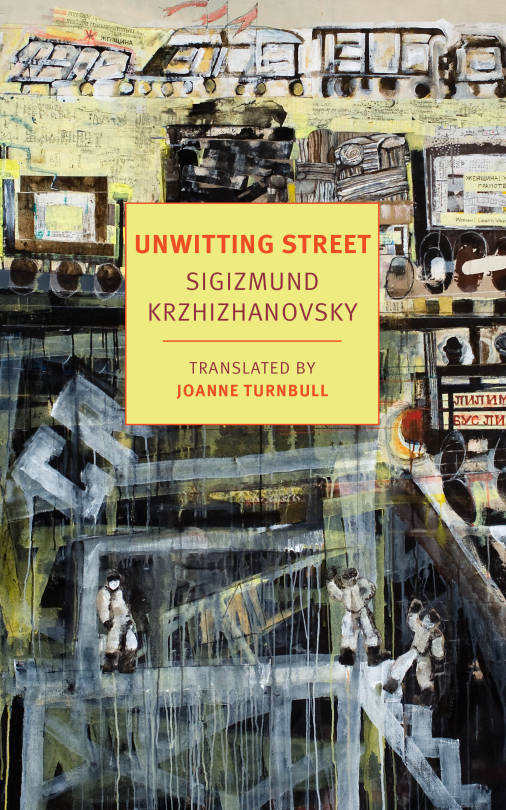
Sigizmund Krzhizhanovsky, Unwitting Street: Stories
Sigizmund Krzhizhanovsky is one of NYRB Classics’s greatest discoveries—a gifted storyteller censored for decades by the Soviet regime. The stories of Unwitting Street are brief and playful, making it a perfect introduction. But it’s not all fun and games: even the zaniest of his stories are alive with an undercurrent of darkness. (Take the one where a cursed gray fedora drives its wearers to suicide.)
Natalia Ginzburg, Family Lexicon (1963)
translated by Jenny McPhee (2017)
The postwar period was a time when everyone believed himself to be a poet and a politician. Everyone thought that he could, or rather should, write poetry about any and all subjects since for so many years the world had been silenced and paralyzed, reality being something stuck behind glass—vitreous, crystalline, mute, and immobile. Novelists and poets had been starved of words during the fascist years. So many had been forbidden to use words, and the few who’d been able to to use them were forced to choose them very carefully from the slim pickings that remained. During fascism, poets found themselves expressing only an arid, shut-off, cryptic dream world. Now, once more, many words were in circulation and reality appeared to be at everyone’s fingertips. So those who had been starved dedicated themselves to harvesting the words with delight. And the harvest was ubiquitous because everyone wanted to take part in it. The result was a confused mixing up of the languages of poetry and politics. Reality revealed itself to be complex and enigmatic, as indecipherable and obscure as the world of dreams. And it revealed itself to still be behind glass—the illusion that the glass had been broken, ephemeral. Dejected and disheartened, many soon retreated, sank back into a bitter starvation and profound silence. The postwar period, then, was very sad and full of dejection after the joyful harvest of its early days. Many pulled away and isolated themselves again, either within their dream worlds or in whatever random job they’d taken in a hurry in order to earn a living, jobs that seemed insignificant and dreary after so much hullabaloo. In any case, everyone soon forgot that brief, illusory moment of shared existence. Certainly, for many years, no one worked at the job he’d planned on and trained for, everyone believing that they could and must do a thousand jobs at once. And much time passed before everyone took back upon his shoulders his profession and accepted the burden, the exhaustion, and the loneliness of the daily grind, which is the only way we have of participating in each other’s lives, each of us lost and trapped in our own parallel solitude.
Post link
Natalia Ginzburg, Happiness, as Such (1973)
translated from the Italian by Minna Zallman Proctor (2019)
Visiting this house, I feel like I’m drowning in endless melancholy. Now I’m back in my room at the boardinghouse and can see the city of Leeds through the window, one of the last cities Michele walked through. I’m having dinner with Ermanno Giustiniani tonight and he’s a nice boy but he can’t tell me much about Michele because he didn’t know him for that long and doesn’t remember much, or perhaps it makes him too sad to talk about it with me. He’s a boy. Boys today don’t have big memories, and more importantly, they don’t cultivate them. You and your mother have a stronger inclination to preserve memories. This life now has nothing to equal to the places and moments we passed through to get here. I’ve lived things and observed things, knowing all the while that each moment had extraordinary splendor. I had to make myself remember. It was always so painful to me that Michele didn’t want to, or couldn’t, understand such splendor, that he moved forward without ever turning back. But I believe he sensed my splendor. A number of times I have thought that maybe while he was dying he had a flash of understanding and he traveled all the paths of his memory and I am consoled by this thought because nothing brings consolation when there is nothing left, and even seeing that dusty undershirt in that kitchen, and then leaving it behind, was a strange, icy, lonely consolation.
Post link
Magda Szabó, The Door (1987)
translated by Len Rix (2005)
I seldom dream. When I do, I wake with a start, bathed in sweat. Then I lie back, waiting for my frantic heart to slow, and reflect on the overwhelming power of night’s spell. As a child and young woman, I had no dreams, either good or bad, but in old age I am confronted repeatedly with horrors from my past, all the more dismaying because compressed and compacted, and more terrible than anything I have lived through. In fact nothing has ever happened to me of the kind that now drags me screaming from my sleep.
Post link
Agustín Fernández Mallo, The Nocilla Trilogy 1: Dream (2006)
(trans. from Spanish by Thomas Bunstead in 2015)
Deserts, like the sick, are objects: though living, they are on the edge of everything, are undergoing a process of consumption, and are fundamentally gaunt. Each has white-yellow skin, and subsists in a state of exhaustion, though each also always finds a genetic oasis to save it in the end. The lack of resources leads them to both fantasize situations of out-and-out abundance and pleasure, even in the most grueling moments reach levels of delirium that border on the lysergic, and gather into their domains all manner of strange creatures, hoping for the feeling that someone loves them, someone cares about them. Also, their gauntness makes them the most aesthetic objects on earth, and this is why Tom, who was born in Little America and who knows he’ll never himself live in the Nevada in which his parents grew up, decided to become a doctor.
Post link
We’re excited to order our copy of the new book by Ahlam Bsharat,Code Name: Butterfly out now from Neem Tree Books!
“With irony and poignant teenage idealism, Butterfly draws us into her world of adult hypocrisy, sibling rivalries, girlfriends’ power plays, unrequited love…not to mention the political tension of life under occupation. As she observes her fragile environment with all its conflicts, Butterfly is compelled to question everything around her. Is her father a collaborator for the occupiers? Will Nizar ever give her the sign she’s waiting for? How will her friendship with the activist Mays and the airhead Haya survive the unpredictable storms ahead? And why is ‘honour’ such a dangerous word, anyway?”
Read a review of Bsharat’s book here.

